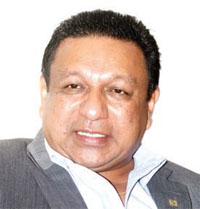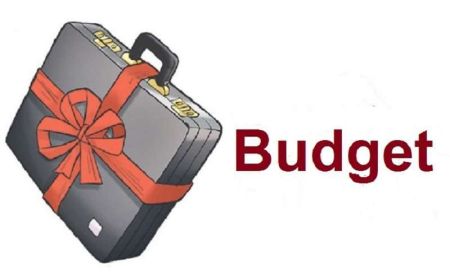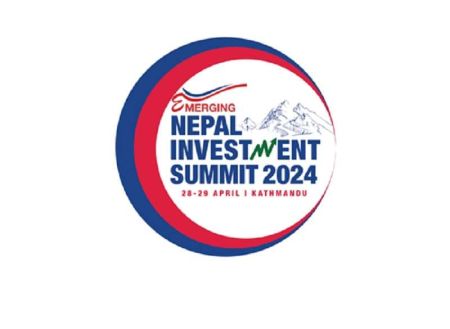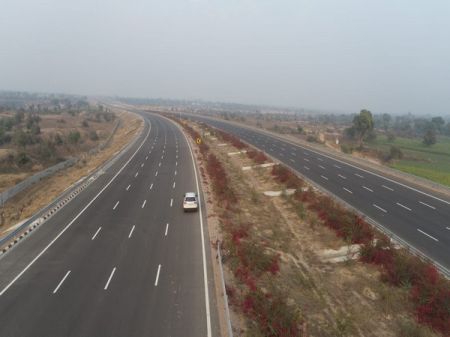
--By Sweta Sharma
There are multiple factors that have limited our economy’s growth in the past few years, the most important being poor investment in mega projects that provide “Big Push” for development. Frequent changes in the government’s plan and policies hamper the flow of investment in the country. As a result, Nepal does not to attract enough foreign investors. What can be done? Here are views from some experts :
Mega projects are big projects that need huge investments for operation. Investors require a stable policy but the Nepali government is not able to form strong policies for mega projects. Before investing in a mega project, investors would compare the benefits from investing in Nepal or in other countries. The frequent change in government policy in Nepal had affected the terms and conditions of issuing a license. since the license for a mega project, such as in hydropower is a long period, such as for 35 years, want security of their investment for equally long period. Private sector investment could be of great help in funding mega projects. But this year, the budget only focused on public projects. This gives reason to worry. As for funding from banks, the main issue would be loan financing. Banks provides 70-80 percent of the project cost as loan and they want loan protection. The government, on the other hand, seems to be very slow in the development of mega projects. A proper land acquisition policy should be implemented for smooth implementation of mega projects. The Foreign Investment and Technology Transfer Act is also not investor-friendly. Thus, the Project Development Agreement (PDA) that the developer has to sign with the goverment should be bankable and internationally accepted. PDA could be the overall solution for funding mega projects in Nepal either for domestic investment or foreign investment. Recently, IPPAN proposed a PDA to the government on 7th July, 2013 and government seems positive regarding it. |
Nepal does not have the capacity to run mega projects. Environment for investment is not quite favorable and it is difficult to attract investors. The main problem is, there is an internal conflict in both the government and the private sector. The policies are not clear about funding mega projects from different sources. Time and again policies get changed with the change in government. This has definitely made it difficult to attract foreign investors. Nepal’s government still lacks willingness to provide safety to investment. The bank alone is not able to fund mega projects as it needs huge investment and on top of that Central Bank has increased the paid up capital requirment for banks. In this situation, we cannot expect from banks to contribute in mega projects. Though the budget for fiscal year 2013/14 said it has given emphasis on energy sector, it still is not reasonable. Government has yet failed to meet the expectations of energy sector to bring special programmes. The country needs some concrete programmes when it is going through such severe energy crisis. In this situation, government should be able to involve private sector to fund mega projects considering their demands and suggestions. |
The main hurdle to fund mega projects and hydro projects is political instability. Nepal is experiencing the political chaos since long. Instability in politics have led to hurdles in forming concrete policies. As long as Nepal does not have firmed policies regarding investments, investors will never be interested in any mega projects. Talking about Nepal’s experience regarding policies, it is yet not consistent. In this context, government should be able to bring long term plans and programmes to maintain the consistency in mega projects operation. Next issue is that of income tax. It is not clear what income tax rate will be after 2015. It is natural that general public are not inclined to invest in mega projects as there is no mechanism to secure the investments. So, it is must to establish a safer mechanism to attract funds from general public. There exists the confusion about who is to supervise the hydro projects by Ministry of Energy or Investment Board. Thus, this confusion too should be cleared. Similarly, talking about the hydro projects, there is difference in royalty of Electricity Policy and Electricity Act. The Act has a provision for lower royalty whereas the policy has a provision for higher royalty. This too has created problem in investment which needs to be cleared soon. The projects should be supervised by one body so that there won’t be any problems in running any mega project. |
Present legal hurdles for funding of mega projects in Nepal in terms of getting funds from banks, non-banking organization, foreign investors and general public are: • Non-recourse financing is difficult to obtain because BAFIA requires collateral / security for any lending by financial institutions (Banks, Finance companies, Insurance); • Inability of current Financial Institutions to raise funds outside of retail deposits; • Single Obligor Limits (SOL) and Sectorial limits mandated by NRB regulations; • Not necessary a legal hurdle, but there is a lack of depth in Nepal’s financial instruments and products with an active secondary market for such instruments. In my opinion, these legal hurdles can be removed by adopting the following measures: • Create a new class of financial institutions that would be allowed to lend on a non-recourse basis with new set of guidelines on SOL and sectoral limits; • Regulations to create and foster confidence in active secondary markets for fixed income securities and other financial instruments to finance large infrastructure projects |


.jpg)





















